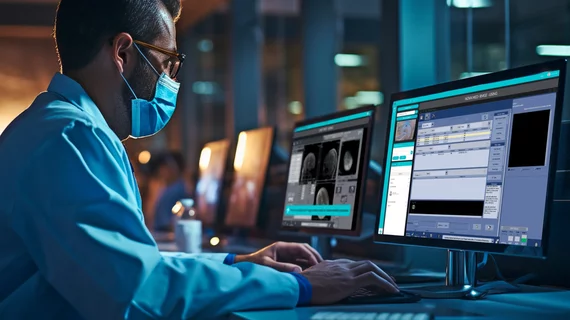ACR wants to hear from radiologists on remote scanning
The American College of Radiology is urging members of the imaging community to submit feedback on the practice of remote scanning.
ACR is giving until Dec. 13 to comment on its official statement related to this topic, which includes “high-level principles that form the basis for more specific…guidance to come.” Remote scanning has become a hot topic since 2020, allowing individuals to use telehealth tools to supervise and guide imaging exams from other locations.
“The ACR supports remote scanning use if conducted in a manner that promotes patient safety, imaging quality and personnel development,” the college said in a news update published Dec. 4. “Modern CT and MRI scanners can be operated remotely. When used appropriately, remote scanning can expand the reach of skilled technologists, which may benefit rural and underserved areas. Yet, without safeguards, the technology could negatively impact patient care.”
The statement, dated Oct. 23, details potential opportunities presented by remote scanning. These include extending technologists’ experience, improving provider productivity, bolstering patient access, optimizing protocols across a geographically dispersed area, and strengthening supervision. However, it also comes with potential downsides such as having an insufficient number of personnel on-site, reducing technologist skill, and negatively impacting care coordination and patient relationships, ACR noted.
“Ambiguity in decision-making authority can lead to mistakes arising from lack of coordination,” the college said in its statement. “Furthermore, interpersonal relationships between remote and on-site technologists can potentially be compromised in the absence of regular in-person contact, which can undermine teamwork and compromise patient care.”
For ACR, the overriding principle in remote scanning is that patient safety, exam quality and patient experience must always be maintained at the same level that occurs when imaging someone on-site.
“When used appropriately, remote scanning offers the possibility of enhancing patient care and access,” the statement concludes. “However, because of the risks associated with remote scanning, organizations must take deliberate steps to ensure that remote scanning is performed in a safe manner that also ensures optimal patient care and experience and personnel management that is at the same level as standard scanning with the technologist on-site.”
ACR’s update comes after Medicare earlier this year opted to allow remote monitoring of diagnostic imaging exams for at least one more year. It first granted the perk amid the COVID-19 pandemic but has extended the flexibility following strong provider interest. CMS also recently approved new MRI standards related to remote scanning, while Philips scored FDA clearance for expanded capabilities for its Radiology Operations Command Center.
You can read the full ACR remote-scanning statement here and comment here by Friday.

